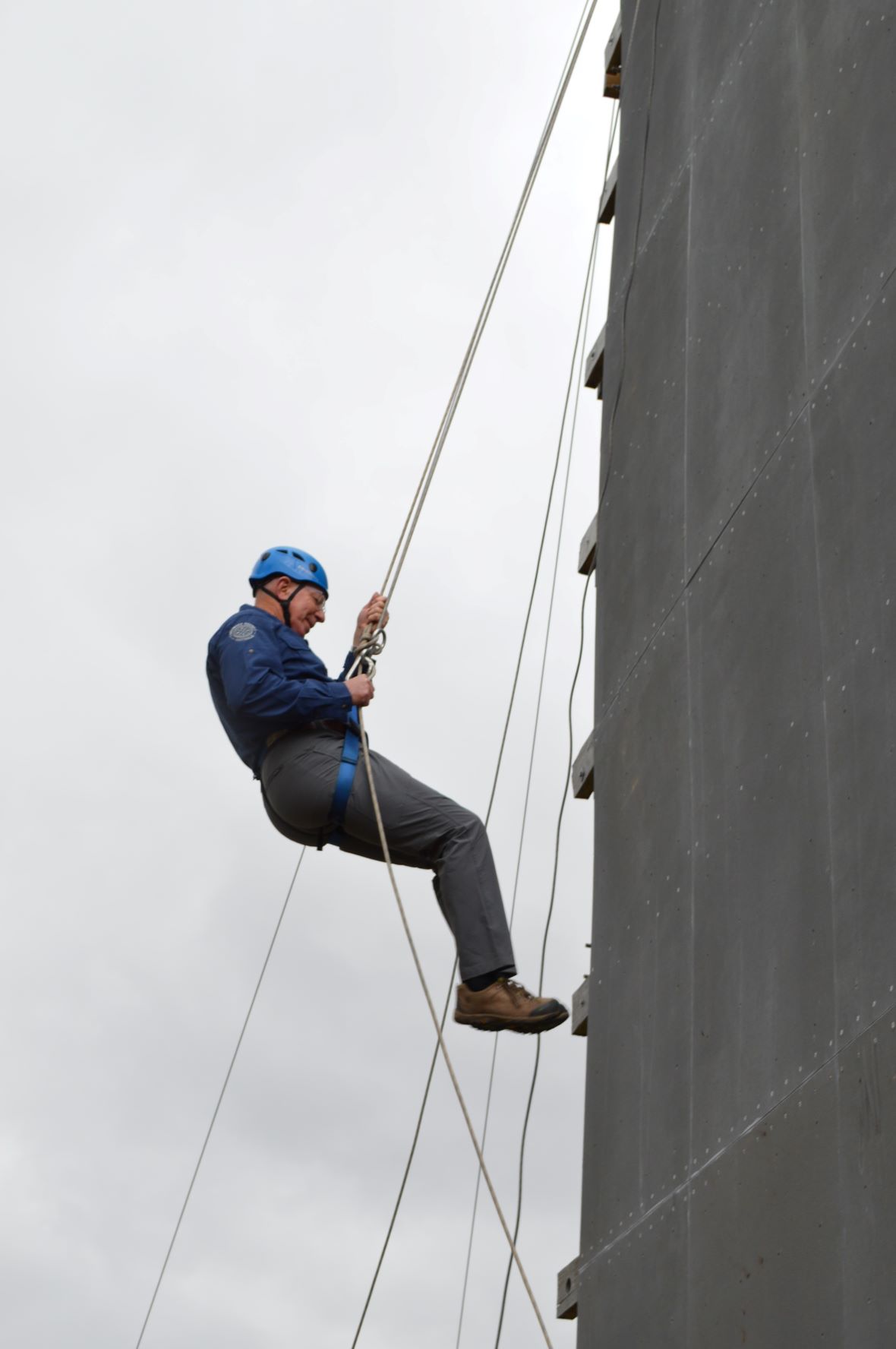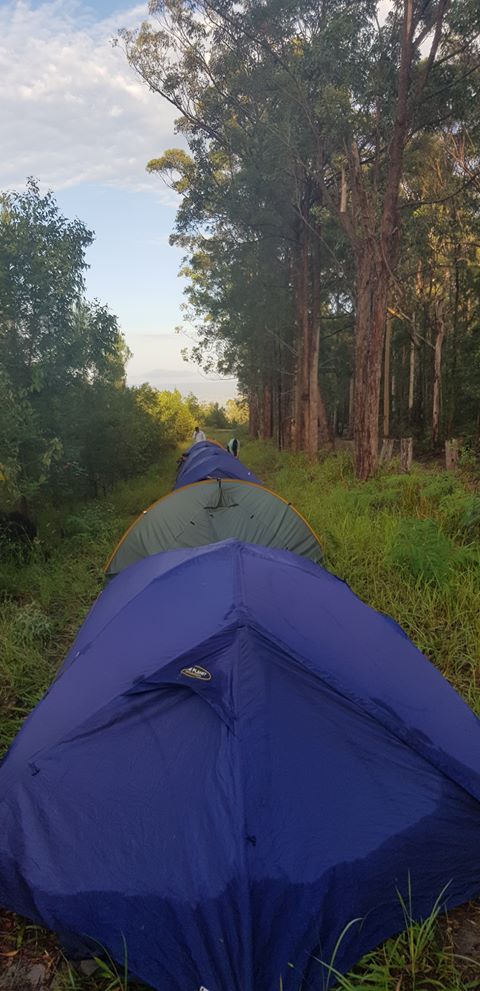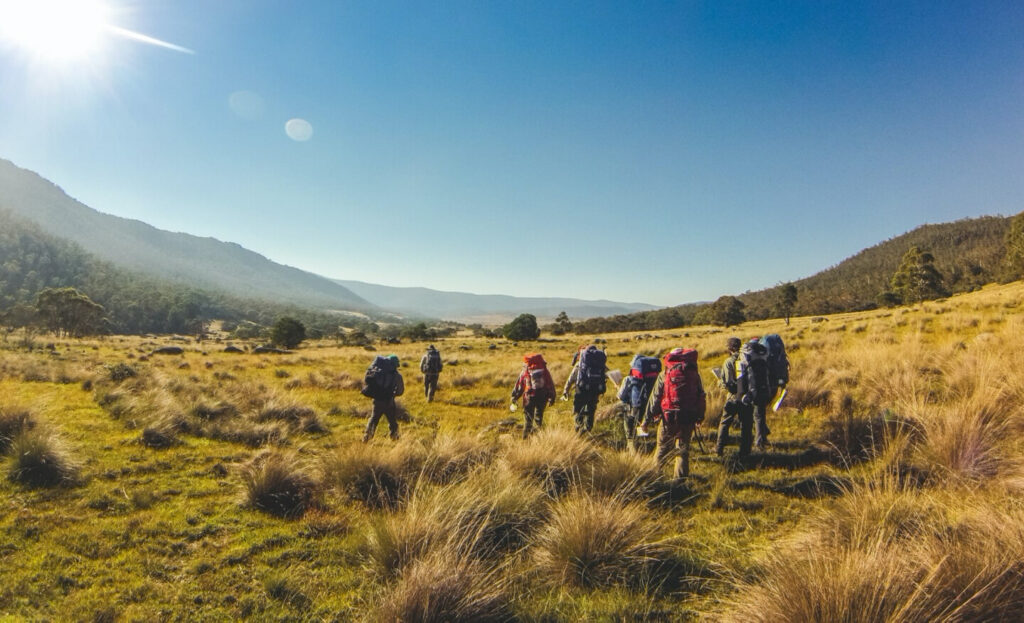Adventure Learning or How to break the cycle of disadvantage and have fun outdoors too
Mental health, homelessness, disadvantage… the for-purpose sector takes on some intractable challenges. The problems we grapple with are not going to go away on their own, and if anything they are getting worse. We have to consider whether the way we have always done things is the best way.
Doing something different, in a different place, can help break a cycle, change a conversation, change a mindset, change a life.
The application of adventure learning to solve social issues is innovative, daring and effective. It offers an inspiring “place apart”, unforgettable challenges, and the joy of discovering you can do the previously unthinkable.
What is adventure learning?
Adventure learning (or experiential learning, or outdoor education) is authentic learning through purposeful and intense experiences with real consequences and powerful, positive and memorable outcomes.
It typically takes the form of relatively short experiences (days or weeks) that challenge people, and through which they discover and unleash their potential and learn that they are capable of more than they had thought they were.
From the outside, these experiences look like physically demanding and exciting activities – climbing, abseiling, hiking, rafting, biking etc. But in a framework such as Outward Bound’s, these activities are just a means to an end. These activities (and other more low-key ones) are presented in a way designed to help people to understand, to learn and to grow, and debriefing is an important part of the process.
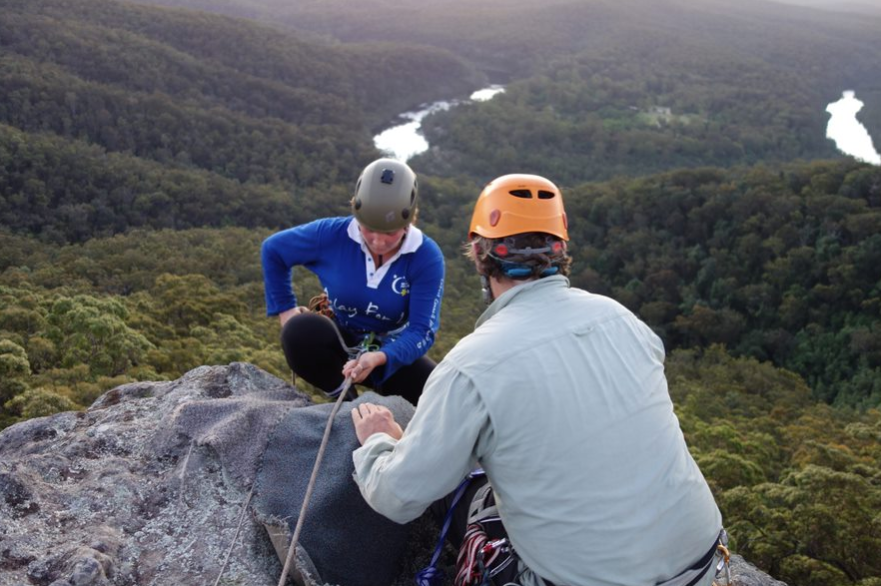
Much adventure learning takes place through schools (“outdoor education”), as children and teenagers test boundaries, experience new things and learn about themselves.
In the for-purpose sector, adventure learning programs are typically delivered in partnership with other not-for-profit organisations and are designed to address particular issues, and achieve particular outcomes. Partners use adventure learning within case management or other existing structures to break a cycle and achieve those outcomes.
For example, Outward Bound works with disability organisations that use adventure learning to help their teenage clients to build confidence, agency and independence as they move from the protective environments of home and school to the adult world.
We also work with youth agencies that want to help young people who are at risk to develop resilience and problem-solving abilities, to support future healthy decision making.

The environment makes a difference
The revolutionary childhood educator Margaret McMillan wrote in 1925, “The best classroom and the richest cupboard is roofed only by the sky.”
In our digital, urbanised, busy modern world, where mental health problems are increasingly common, revisionist movements are reminding us of the power of being in nature. The Japanese practice of shinrin-yoku (forest bathing), the Scandinavian friluftsliv (“free air life”, getting outdoors), and nature kindies, nature classrooms, and nature prescriptions handed out by GPs in Shetland and elsewhere all point to the power of the outdoors to enhance learning, well-being and healing.
Outward Bound: origins and partners
Outward Bound has its origins in World War II, where an educator named Kurt Hahn used physically challenging activities in remote settings to unlock potential in sailors in order to increase survival rates. It worked, and when the war ended, the methodology was given life through Outward Bound. Outward Bound now numbers more than 60 organisations around the world.
Kurt Hahn said, “There is more to us than we know. If we can be made to see it, perhaps for the rest of our lives we will be unwilling to settle for less.” Seventy years on, his approach is equally relevant today.
The things that seem the hardest are often the most effective in creating change. In 2019, that may involve unplugging, going somewhere new and inspiring, taking on physical, emotional and mental challenges, taking time out of your routine to work on personal growth, developing mindfulness and learning that you’re capable of more than you thought you were.
Outward Bound works with high school students, early career professionals, for-purpose organisations and the general public to change lives through adventure learning.
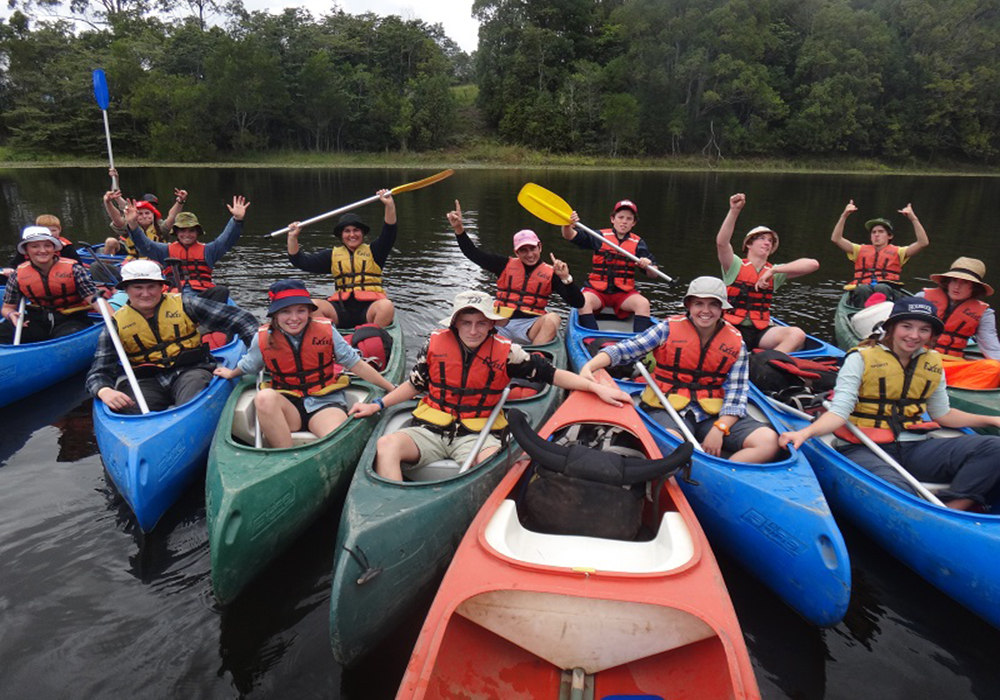
Case study: Stepping Stone House
By Jason Juretic, CEO, Stepping Stone House
Sydney’s Stepping Stone House provides stable, safe and secure medium to long-term accommodation and development for young people aged 12–24 who are experiencing or at risk of homelessness. Its aim is to develop self-esteem, resilience, self-confidence and good health through therapeutic care and motivational adventure education to assist young people to achieve responsible independence and to be the very best they can be.
We believe that with a bit of grit, hard work and determination, young people can overcome all obstacles in their lives and achieve incredible personal rewards.
Stepping Stone House partnered with Outward Bound to offer our young people the opportunity to attend a camp where they could develop the skills required to later complete the “Adventurous Journey” requirement of the Gold Duke of Edinburgh Award, a global youth development program.
The camp exceeded our expectations. Many of the participants referred to it as the most challenging experience of their lives, and there is little doubt it developed leaders of the next generation.
One previously disengaged young person has since caught up on her assignments and has been asked to be a student representative in the school leadership program. She said the technology-free camp made her realise how much she had looked down, and that she needed to look up more and notice the world around her.
The learning and experiences created during the camp have left lifelong memories. All the participants walked away with a sense of accomplishment. As one said, “It pushed me to do things I never thought I was capable of doing.”
What makes a partnership work
The most successful partnerships between Outward Bound and other for-purpose organisations are characterised by these things:
- Preparation and expectation setting on both sides
- Clear communication about desired outcomes and the challenges that will need to be overcome
- The opportunity to build rapport and engagement before the program starts
- Stewardship and active involvement during the program by the partner agency
- Selection of the right candidates for participation
- Commitment to repeating, refining and scaling.
What the data says
There is much data on the short- and medium-term impact of adventure learning, although there’s a comparative lack of data on long-term impact. Well-designed programs produce large and demonstrable changes in soft skills such as resilience, confidence, empathy, problem solving, lateral thinking, communication and leadership. Dr James Neill from Canberra University is one of the world’s leading researchers in this field and his measurement tools are widely used.
As a rule of thumb, the longer and more immersive the outdoor experience, the greater the impact. Five days is widely regarded as the minimum time required for deep and lasting change. But as anyone who has skydived or bungy-jumped or otherwise stepped far outside their comfort zone knows, a short, unique but memorable experience can also have a profound effect.
Isn’t outdoor adventure risky?
Outdoor activities carry some inherent risks. Outdoor adventure organisations are held to high safety standards, and most – including Outward Bound – have highly refined safety management processes. Abseiling and rafting might look and feel scary and risky, but because of the safety measures in place, there is a big difference between perceived risk (“This feels scary!) and actual risk (We have this covered!). Risk is an important and managed element of someone’s stepping out of their comfort zone.
Partnering with Outward Bound: funding available
Outward Bound has funding available for partners who are interested in innovative approaches to intractable problems, via a co-funding model. This is thanks to the vision and generosity of our donors via the Australian Outward Bound Development Fund.
If your for-purpose organisation has a client group with particular challenges to meet, and seeks an innovative way to break the cycle, get in touch with an expression of interest and we can explore options. The best way to get in touch is by email: mailbox@outwardbound.org.au.
